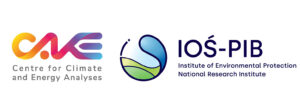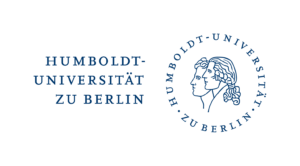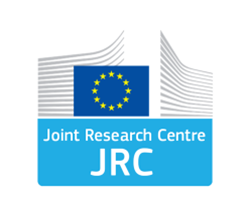Partners & Associated Partners
International Institute for Applied Systems Analysis (IIASA)

Potsdam Institute for Climate Impact Research (PIK)
Climate Analytics (CA)
Fondazione Centro Euro-Mediterraneosui Cambiamenti Climatici (CMCC)
Vrije Universiteit Brussel (VUB)
E3-Modelling (E3M)
Instytut Ochrony Środowiska - Państwowy Instytut Badawczy (IOSPIB/CAKE-KOBiZE)
Ministerie van Infrastructuur en Waterstaat (PBL)
Università degli Studi di Firenze (UNIFI)
Eidgenössische Technische Hochschule Zürich (ETH Zürich)
Joint Research Centre - European Commission (JRC)
Joint Research Centre - European Commission (JRC)
Imperial College of Science, Technology and Medicine (Imperial)
International Institute for Applied Systems Analysis (IIASA)
The International Institute for Applied Systems Analysis, founded in 1972, advances systems analysis and applies its research methods to identify policy solutions to reduce human footprints, enhance the resilience of natural and socioeconomic systems, and help achieve the sustainable development goals. It is Coordinator of SPARCLLE, and additionally is involved in stakeholder processes, scenario design, online dashboard, socioeconomic and vulnerability projections, and integrated assessment modelling. At IIASA, SPARCCLE project involves four research programmes: Energy, Climate, and Environment (ECE), Biodiversity and Natural Resources (BNR), Advancing Systems Analysis (ASA) and Population and Just Societies (POPJUS).

Fondazione Centro Euro - Mediterraneo sui Cambiamenti Climatici (CMCC)
CMCC was established in 2005 and its mission is to investigate and model our climate system and its interactions with society to provide reliable, rigorous, and timely scientific results as well as foresights and quantitative analysis of our future planet and society which will, in turn, stimulate sustainable growth, protect the environment and develop science-driven adaptation and mitigation policies in a changing climate. CMCC collaborates with experienced scientists, economists, and technicians, who work together in order to provide full analyses of climate impacts on various systems such as, but not limited to, agriculture, ecosystems, coasts, water resources, health, and economics. Its SEME division based in Milan within the European Institute on Economics and the Environment (EIEE) is a partner organisation of the SPARCCLE project.

Climate Analytics (CA)
Climate Analytics will take a leading role in Work Packages 1 and 4 of the project. They will be responsible for stakeholder mapping, interaction, and management, including convening a Stakeholder Advisory Board. Furthermore, they will implement an analysis of synergies and trade-offs in EU mitigation and adaptation policy, drawing insights gathered from a workshop involving relevant stakeholders. Climate Analytics will also be responsible for co-designing and evaluating stress-testing scenarios, which will be utilised across the project. A main responsibility within the SPARCCLE project will be identifying adaptation options for key sectors and hazards, considering socioeconomic vulnerability in a gender resolved manner. This includes co-designing adaptation pathways, analysing their constraints and limits, subjecting them to stress testing, and informing probabilistic climate risk modelling.

Potsdam-Institut für Klimafolgenforschung (PIK)
The Potsdam Institute for Climate Impact Research aims at advancing the scientific frontier on inter-disciplinary climate impact research for global sustainability and contributing knowledge and solutions for a safe and just climate future. PIK integrates the latest understanding of the Earth system with the assessment of climate risks, and with the exploration of policies and pathways towards a manageable climate future. Within SPARCCLE, PIK leads Work Package 2 and is engaged with spearheaded methods and open-source tools that can help connect physical climate changes to impacts and vulnerability, and to represent climate impacts and vulnerability in integrated assessment mitigation pathways (ISIMIP). At PIK, research department Transformation Pathways is involved in the SPARCCLE project.

Vrije Universiteit Brussel (VUB)
The Vrije Universiteit Brussel (VUB) is an internationally oriented university in Brussels, the heart of Europe and gateway to the world. The VUB is a dynamic, modern, public university with four campuses in the Brussels-Capital Region and represents an ideal partner for prestigious international research and education with a European and global perspective. VUB counts over 3,000 staff members and more than 16,000 students, 21% of which are international, representing about 130 different nationalities. Within the SPARCCLE project, VUB researchers, under the coordination by Wim Thiery, will contribute their knowledge and expertise on biophysical climate impacts and extremes, socioeconomics and vulnerability, adaptation, damages, and climate risk assessment.

E3-Modelling (E3M)
E3-Modelling is an anonymous company, established in Greece, as a knowledge-intensive consulting company spin-off inheriting staff, knowledge and software-modelling innovation of the University laboratory E3MLab. The company specialises in the delivery of consulting services based on large-scale empirical modelling of the nexus economy-energy-environment. The experience goes back to 1990 and includes internationally renowned milestones, such as the models PRIMES and GEM-E3 and the support of major impact assessment studies and scenario building of the European Commission. The group performs since 1990 a European energy and transport outlook published every 2-3 years by the European Commission. The modelling and consulting services have also served numerous studies for European Governments, professional associations, and large-scale companies in the energy field. The consultation expertise of the group focuses on the design of transition in the energy market and systems, both in the demand and supply of energy, towards green and climate-friendly structures and technologies. Thanks to the modelling, the group assesses the transitions from economic, policy and implementation perspectives putting emphasis on the functioning of the system and the markets as a whole when policy instruments influence behaviours and market outcomes. In this context, the group has particular expertise in modelling and quantifying alternative economic outlooks and growth pathways and examine how different climate and energy policies impact the economic and social system. E3M’s project coordinator and senior researcher Zoi Vrontisi is involved in the SPARCCLE project.

Instytut Ochrony Środowiska - Państwowy Instytut Badawczy (IOSPIB/CAKE-KOBiZE)
The Centre for Climate and Energy Analysis (CAKE) operates as a specialised analytical hub within the National Centre of Emissions Management (KOBiZE) at IOS-PIB. CAKE embodies a collective of experts developing and implementing cutting-edge analytical tools, networks, and communication channels. At its core, CAKE is committed to furnishing actionable knowledge to fortify the decision-making process. With a wealth of experience in climate and energy policy analysis, CAKE’s experts monitor both EU and Polish climate policies. The principal task of the CAKE team in the SPARCCLE project is to incorporate the impact of climate change into the macroeconomic model. Utilising data from scientific literature as well as data and information provided by other consortium members, the team will prepare simulations that will indicate the influence of climate change on the economy in selected regions of the world, including changes in the labour market (employment, wages, and flows of workers between sectors).

PBL Netherlands Environmental Assessment Agency
PBL Netherlands Environmental Assessment Agency is the institute in the Netherlands for strategic policy analysis in the fields of the environment, nature and spatial planning. PBL contributes to improving the quality of decision-making in the Netherlands and internationally by conducting outlook studies, analyses and evaluations in which an integrated approach is considered paramount. Within the SPARCCLE project, PBL will collaborate with project partners to integrate climate change impacts into the integrated assessment models IMAGE and MIMOSA. Following, these modelling tools will be used to investigate the implications of climate change impacts on different sectors, as well as the synergies and trade-offs of adaptation vs. mitigation.

Università degli Studi di Firenze (UNIFI)
The University of Florence (UNIFI) is one of the most active Italian universities in terms of projects and related grants within the Technology Research and Development Framework of the European Union. Research and training programmes include civil engineering with strong environmental connotations, such as environmental sustainability, climate change and new energy resources. Within the SPARCCLE project, UNIFI will contribute to the assessment of socioeconomic vulnerabilities to climate extremes and associated risks, under the coordination of Giovanni Forzieri. These works include the synergic integration of Earth observations with process-based models and big data analytics developed within multi-disciplinary frameworks.

Humboldt-Universität zu Berlin (HU Berlin)
Humboldt-Universität zu Berlin is one of the 20 largest universities in Germany and one of the most renowned universities worldwide. Its Integrative Research Institute on Transformations of Human-Environment Systems (IRI THESys) is a partner organisation of the SPARCCLE project and is responsible for leading stakeholder engagement processes. At IRI THESys, researchers across disciplines investigate the dynamically interwoven ecological and social change in the Anthropocene with a focus on five themes and their interconnectedness: land use change, integrative food systems, global water cycles, climate change adaptation, and energy and infrastructures.

Eidgenössische Technische Hochschule Zürich (ETH Zürich)
ETH Zürich is one of Europe’s leading research universities. Its numerous collaborations with other renowned engineering and science institutions around the world offer valuable international opportunities for scientific and intellectual exchange. ETH’s Land-Climate Dynamics group led by Prof. Sonia Seneviratne, together with the Weather and Climate Risks group led by Prof. David N. Bresch within the Department of Environmental Systems Science, will contribute to advancing the SPARCCLE project. The Land-Climate Dynamics team at ETHZ will be producing new scenarios of probabilistic climate hazard data using the MESMER emulator. The Weather & Climate Risks team will be combining the climate hazard data with vulnerability projections, to assess climate risks and damages using the CLIMADA framework.

Joint Research Centre - European Commission (JRC)
The JRC provides independent, evidence-based knowledge and science, supporting EU policies to positively impact society. As a department of the European Commission, the JRC plays a key role at multiple stages of the policy cycle. It works closely with other Commission departments, EU institutions and agencies, as well as with scientific partners and policy organisations in Europe and internationally. The JRC offers scientific expertise and competences from a very wide range of scientific disciplines in support of almost all EU policy areas. The JRC’s involvement in the SPARCCLE project will be spearheaded by the Directorate for Energy, Transport & Climate and the Directorate for Sustainable Resources. In SPARCCLE, the JRC will be involved in a number of activities, primarily focused on new high-resolution demographic projections, climate impacts on biomass production, vulnerability and damage estimates, and integration of climate impacts in integrated assessment modelling.

Imperial College of Science, Technology and Medicine (Imperial)
Imperial College London is a world top ten university committed to developing the next generation of researchers, scientists and academics through collaboration across disciplines. The Grantham Institute within Imperial College London is Imperial’s hub for climate change and the environment. It has a network of experts from multiple disciplines and departments across Imperial – one of the largest concentrations of academics working across climate change and the environment in the UK. Within SPARCCLE, Imperial College London contributes to the exploration of robust strategies towards climate resilience.
